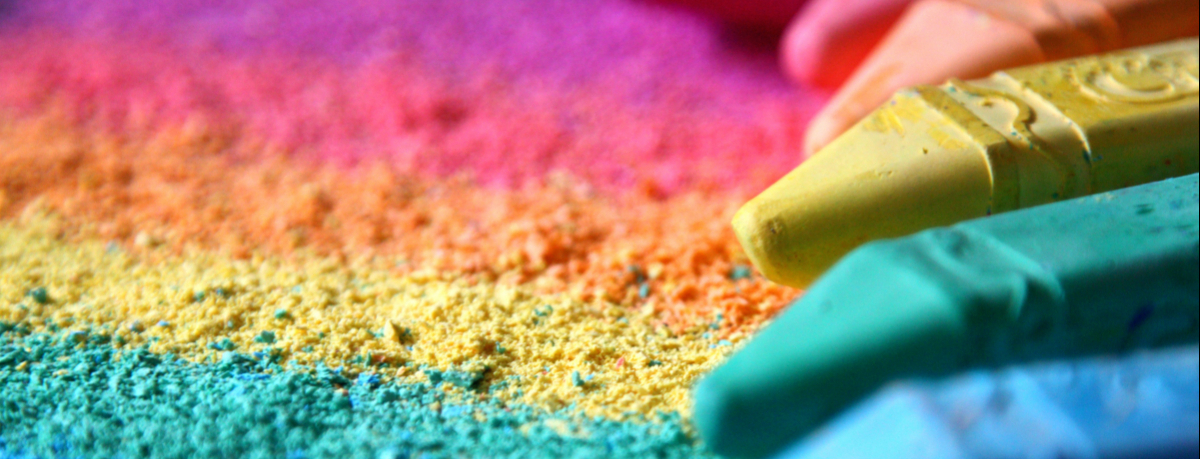People who learn a new language widen their cultural horizons, improve their memory, boost their brain, develop critical thinking and become multitaskers. If you have decided to learn French, that is a really good choice because, according to the Ministry for Europe and Foreign Affairs, this is the fifth most widely spoken language in the world. In fact, more than 300 million people speak French in the world! Also if you are thinking of studying abroad, learning French will open the possibility of applying to prestigious universities and education institutions. For all these reasons, we have written this article. Continue reading it because you are going to grasp the basics of French. You will get familiar with:
- the most common everyday phrases in French
- colors
- the house
- nature
- and some useful tips to learn vocabulary
All right, so, are you ready to fall in love with this marvelous language? Enjoy! Find out more about the TCF test different sections of the TCF and instructions.
If you wish to learn French online in order to take any of the tests DELF, DALF or TCF, revising all our french vocabuary worksheets is always a great idea!

The most common “everyday” phrases used in French
Now that you know how and why to learn French, before you focus on being able to write perfectly, have a good pronunciation in French and so on, you should research the best ways to learn this language in order to learn the basic French vocabulary. GlobalExam is definitely one of them!
Greetings, introductions and saying good-bye are a way of creating a first good impression, showing politeness and being welcoming. It doesn’t matter if your pronunciation isn’t so accurate, if you put into practice all these expressions, we can guarantee, you are going to start developing your communication skills in French!
Everyday Phrases Used in French – Les expressions les plus courantes utilisées en français
| Greetings | Les salutations |
| Good morning, how are you? | Bonjour, comment vas-tu? |
| Hello, how are things going? | Salut, comment ça va? |
| Hi, how is it going? | Salut, ça va? |
| Fine, thank you and you? | Très bien, merci, et vous même? |
| Okay, thanks, and you? | Bien, merci, et toi? |
| Great, thanks, and you? | Super, merci, et toi? |
| Not so bad, thanks. | Pas trop mal, merci. |
| Introducing Oneself | Se présenter |
| Hello, my name is.../ I’m... | Bonjour, je m’appelle… / je suis... |
| Good evening, I’m... | Bonsoir, je suis... |
| Hi, I’m... | Salut, je suis... |
| Introducing Other People | Présenter d’autres personnes |
| Do you know each other? | Est-ce que vous vous connaissez tous les deux? |
| Kathe, this is Tina, Tina, this is Kathe. | Kathe, voici Tina, Tina, voici Kathe. |
| Hello, Tina, nice to meet you. | Bonjour Tina, ravie de faire votre connaissance. |
| How do you do. | Enchanté / Enchantée. |
| Come and meet Bill. | Viens faire la connaissance de Bill. |
| Welcome someone | Souhaiter la bienvenue |
| Welcome to France! | Bienvenue en France! |
| Come in and make yourself at home! | Entrez et mettez-vous à l’aise. |
| Glad you could come. | Je suis content/contente que tu aies pu venir. |
| Saying Goodbye | Prendre congé |
| Well, I have to go. | Bon, il faut que je parte. |
| Well, I must rush. | Bon, il faut que je file... |
| It’s been nice talking to you. | Ça m’a fait plaisir de parler avec vous. |
| Goodbye / Bye | Au revoir. |
| I’ll see you soon/ tomorrow/ next week. | A bientôt / demain /la semaine prochaine. |
Colors
Let’s learn some of them in French:
Colors – Les couleurs
| a color | une couleur |
| Primary colors | Les couleurs primaires |
| yellow | jaune |
| blue | bleu |
| red | rouge |
| Other colors | Autres couleurs |
| pink | rose |
| ivory | blanc cassé |
| white | blanc |
| green | vert |
| mauve | mauve |
| gray | gris |
| black | noir |
| brown | marron |
| purple | violet, pourpre |
| To describe | Pour décrire |
| light | clair |
| dark | foncé |
| deep | vif |
The house
Now, let’s see how to talk about the house in French. First, we’ll study some vocabulary and then we’ll read an example using it.
The house – La maison
| to live | habiter |
| move in | emménager |
| move out | déménager |
| house | une maison |
| apartment, flat | un appartement |
| home | chez soi, foyer |
| entrance | l’entrée |
| door | une porte |
| living room | le salon, la salle de séjour |
| dining room | la salle à manger |
| bathroom | la salle de bains |
| toilets | les toilettes |
| bedroom | la chambre |
| window | la fenêtre |
| kitchen | la cuisine |
| study | le bureau |
| basement | le sous-sol |
| cellar | la cave |
| attic | le grenier |
| laundry room, utility room | la buanderie |
| cloakroom | le vestiaire |
| upstairs | à l’étage, en haut |
| downstairs | en bas |
| ground floor, first floor | le rez-de-chaussée |
An Example Using Some House Vocabulary:
| I live in a flat. It’s on the first floor. I moved in in July. The living room is pretty big. The dining room and the kitchen are not separated. But the toilets are separated from the bathroom. My bedroom is very cozy and bright. There is a big window. I also have a little study. There is no attic or cellar. | J’habite dans un appartement. Il est au rez-de-chaussé. J’ai emménagé en juillet. Le salon est assez grand. La salle à manger et la cuisine ne sont pas séparées. Par contre, les toilettes sont séparées de la salle de bain. Ma chambre est très confortable et lumineuse. Il y a une grande fenêtre. J’ai aussi un petit bureau. Il n’y a ni grenier ni cave. |
Nature
The Nature – La nature
| the meadows | les prés |
| the mead | la prairie |
| the mountain | la montagne |
| pasture lands | les pâturages |
| streams | les cours d’eau |
| falls and cascades | les chutes et les cascades |
| ponds and lakes | étangs et lacs |
| a river | un fleuve |
| the grass | l’herbe |
| the vineyards | les vignes |
| a country path | un sentier |
| a lane | un sentier campagnard |
| an orchard | un verger |
| a garden | un jardin |
| the lemon-tree | le citronnier |
| the fig-tree | le figuier |
| the pomegranate tree | le grenadier |
| the orange-tree | l’oranger |
| the chestnut tree | le châtaignier |
An Example Using Some Vocabulary About Nature:
I love nature. On weekends, I got to the mountains. I take walks around falls and cascades. I walk along the country paths. In the pastures; there are Charolais cows. There are also fig-trees, my favorite trees. | J’adore la nature. Les week-ends, je vais à la montagne. Je me promène autour des chutes et des cascades. Je marche dans les sentiers. Dans les prairies, il y a des vaches charolaises. Il y a aussi des figuiers, mes arbres préférés. |
How To Improve Your Vocabulary Learning In French?
Improving your vocabulary is up to you! Nowadays there are no excuses not to learn and put into practice new words. There are many resources on the Internet: you can download your favorite novel in French, enjoy it and create a vocabulary notebook. Use colors to classify words according to the parts of speech (adjectives, nouns, adverbs, verbs, etc.) If you don’t know exactly which French author you should read, look for recommendations according to your level. Playing games is also a fun way to increase vocabulary! There are free online games to practice French. If you like music, look for Canadian, French or Belgian music bands and listen to their songs while reading the lyrics. This will allow you to learn colloquial language. You can also listen to the news on the Internet and watch films with subtitles in French. As you can see there is a wide variety of alternatives to keep on learning French, don’t miss them!
Learn French With GlobalExam!
Are you interested in traveling to a French speaking country? Are you training for the DELF, DALF or even the TCF? Trust our experience and study with us! We are a 100 % e-learning platform and we have the expertise to help you get the best results! Read our articles and get familiar with essential vocabulary about everyday topics. Keep working and parlons en français!
Take some times to read more articles we have written for you to enrich your French vocabulary and improve your language level.
Here with the list of vocabulary worksheets on many kinds of topics:
- The Main technology And Innovations Vocabulary In French
- Nationalities In French: Vocabulary of Countries And Inhabitants
- How To Write Cover Letters And Emails In French? Examples
- Names for Animals / Farm Animals: French vocabulary list
- Numbers in French: Learn How To Count Properly Up To 100
- Physical Description In French: Describe Physical Appearances
- The Top 20 French Expressions Commonly Used In Daily Life
- Cities and Countryside In French: List of names and places
- The Top 100 French Food Vocabulary Words And Phrases
- Body Parts In French: Vocabulary Worksheet And Examples
- Money In French: Essentiels and Practicals Vocabulary List
- History And Literature In French: Useful Vocabulary And Terms
- Work And Projects In French: Vocabulary List And Examples
- How To Ask The Time In French? Learn How To Tell And Write Time
- Talking About The Weather In French: Vocabulary And Terms
- Clothing In French: Learn The Vocabulary To Become A Fashionista
- Activities: French vocabulary for sports and daily culural hobbies
- Family Members In French: Learn Your Family Tree Vocabulary
- Music In French: Styles, Instruments and Musical Notes



